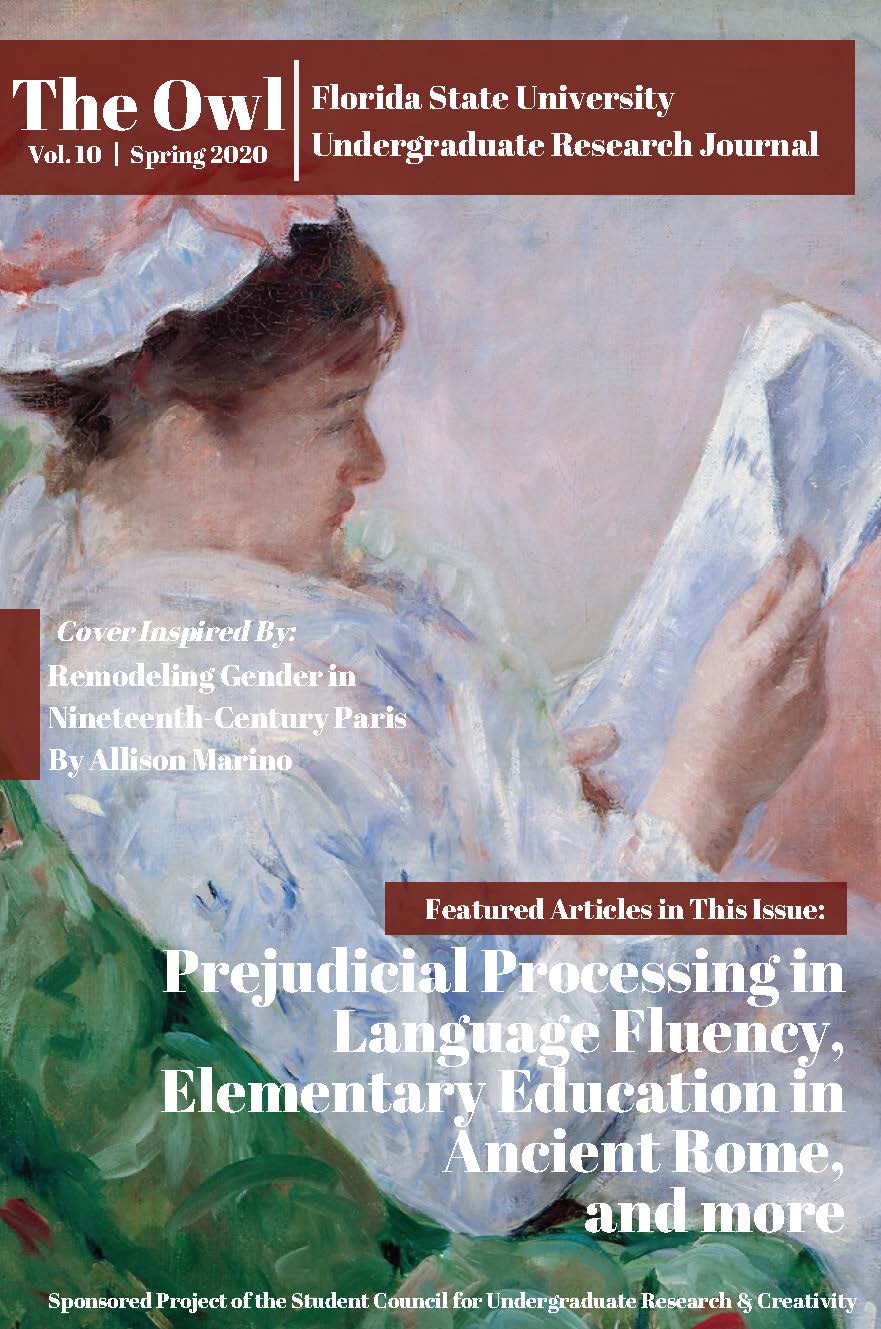PREJUDICIAL PROCESSING
AN INVESTIGATION OF THE ROLE OF PREJUDICE AND BIAS ON THE FLUENCY EFFECT
Resumen
The present study examines the fluency effect and factors which may influence its prevalence. The fluency effect is a phenomenon first reported by Keysar (2010) that purports that people attribute less believability to those with accented speech as opposed to those with native accents, despite the content of speech being identical. The fluency effect is thought to be due to language processing efficiency alone, rather than to any influence outside of the language processing system. This claim, however, is untested. The present study first replicates the experiment conducted by Keysar (2010) where participants were asked to listen to trivia facts and indicate whether they are true or false. Participants were then asked to complete measures for additional potential influencing factors. The additional factors of interest for this project are the prejudicial views and biases of the participants as measured by the Feeling Thermometer and the Implicit Association Test respectively. In contrast to earlier work, this study showed no evidence of a fluency effect. The study also showed no evidence that prejudices and biases affected the participants’ responses to statements by different speakers.
Descargas
Publicado
Número
Sección
Licencia
All works published in The Owl are published under a Creative Commons Attribution, Non-Commercial, Share-Alike (CC-BY-NC-SA) license. The author retains copyright.

